Survival of the Noisiest

Everyone – and everything – talks in Dhaka, and given the chance, most will talk rather loudly than quietly.
Some are loud publicly but quiet privately, some quiet publicly but loud privately. Some are loud only institutionally. Some are unhesitant to spread their sonic blessing everywhere they are, even when they are asleep – for what is snoring if not a loud, synchronised but still-undeciphered form of communication, right?
Jokes apart, if making noises was a sin, most of us would be sinners. There is something about this city that makes you – that is, your vocal cords – tick. You live long enough here, you find yourself in a Sisyphean cycle of creating noise or reacting to it, as I am doing now.
***
But we cannot talk about people's penchant for loudness without talking about what might be causing it in the first place. The main accused, in my view, is noise pollution, of which this city is a decorated world champion. Imagine all the noise and chaos that butt in round the clock – the ceaseless clamour of horns and revving of engines, the constant pounding and buzzing from construction sites, blasting music from weddings, blaring sirens, swearing and sloganeering, random announcements coming through randomly placed street loudspeakers.
The horn-fest, of course, takes the cake. I remember reading an analysis of the language of horns that, at absolute most, can say five things: double beep ("Hello"), single beep ("Excuse me, the light is now green"), longer single beep ("I said the light is green. I will stab you in the heart with a screwdriver if you don't move this second, you twat")… In Dhaka, in the absence of any functional traffic light or traffic management system, horns are certainly much more expressive.

I know this only too well. True, bikers are a horn-y bunch, as in they use horns the most. But the other day, while biking my way home, I got a taste of our own "medicine" after a particularly expressive SUV driver behind me honked repeatedly, forcing me into a corner and marginally hitting the back of another car. It was the most harmless of accidents I've ever had, but also the weirdest, where it wasn't reckless driving that was to blame – it was reckless honking. How I wish cars had come fitted with a "horn-honk" just for apologies for such nuisance.
***
Living with Dhaka's noise pollution is a gruelling endurance test. It makes you feel irritable, on edge, frustrated. The toxic, deeply polarised environment in which we generally live also has the same effect. But I reckon, as a side effect, all this eventually equips you with an inexhaustible tolerance for noise, but also an irresistible itch to speak loudly, even if merely to be heard over louder voices.
You are no longer just a noise survivor then; you are a noise warrior, whether by choice or by circumstance.
***
As a journalist, I'm no stranger to screaming headlines. We often say "a headline screams" when it contains scathing, passionate or boastful content. Just as intangibly, something is screaming inside all of us, too: a deep, guttural noise that you can hear if you listen closely enough. You see the manifestations of this inner noise everywhere you look.
You see boastful political claims without any truth or substance. You see self-righteous ideologues basking in their "woke" or "cancel" moments. You see street scuffles break out for the silliest of reasons. You see pent-up emotions getting unedited release all over the Internet: anger, hate, vanity, pain. Justified or not, artfully expressed or not, noise thus created is eventually contributing to a culture in which the noisiest among us have the best chance of survival in the socio-political food chain.
***
In case it's not still clear, noise is not just heard but felt, too. In other words, it can be both audible and inaudible. In fact, if we broaden the definition of noise/decibels, we can assign a decibel count to everything that is expressed – through sounds or through written words. The further it is to the right or left of your emotional spectrum, the higher or lower the decibel count. Like the post you just shared on Facebook blasting politicians, or decrying rich-poor divide, or airing some other grievances, personal or collective. Like this accident-induced rant about noise pollution.
Books, poems and movies are getting noisier, too. There was a time when movies had long stretches of time just filled with silence, or light music. These days, it's all boom-boom, except movies like A Quiet Place, but they had to present it in a post-apocalyptic setting to make it relatable for today's audience.
***
Yes, like cities, offices make noises, too. In my office, the decibel level is high when it is low everywhere else. That's understandable, given that journalists are known as a rowdy group. But on the off chance that you consider journalists a worthy representative sample of humans, the description below of some of my colleagues will illustrate the various types of people using various vocal pitches:
For example, one colleague once admitted to habitually talking loudly but only sparingly. God bless her heart. Another is proudly loud but has the gift of the gab to soften any blow to the ear. Yet another is soft-spoken, so soft that you doubt if 42 percent of urban rickshaw drivers – who, in a recent survey, were found to be suffering from hearing problems because of noise pollution – will at all hear her. I am more on the quiet-but-not-soft spectrum, not for lack of words but for lack of things important enough to say.
***
But frankly, this is a very small sample size, but you get the point. As Dhaka natives, we have somehow found a way to match our city's insane noise level, and most of us are keeping that level up in everyday interactions.
Sacrificing healing silence for murderous noise – how far can we go along this line?
Badiuzzaman Bay is assistant editor at The Daily Star.

 For all latest news, follow The Daily Star's Google News channel.
For all latest news, follow The Daily Star's Google News channel. 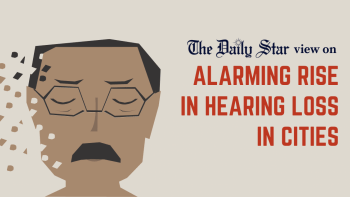
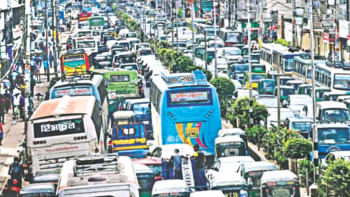





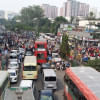
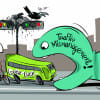

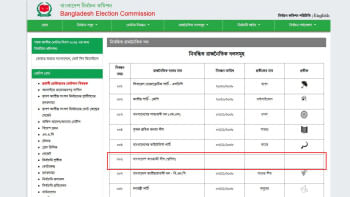
Comments